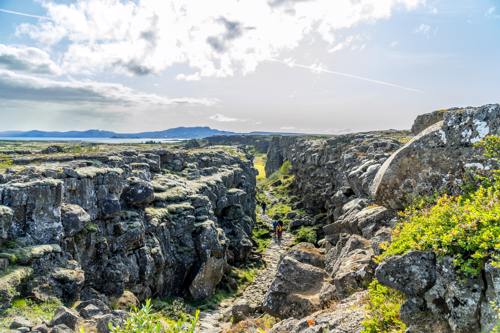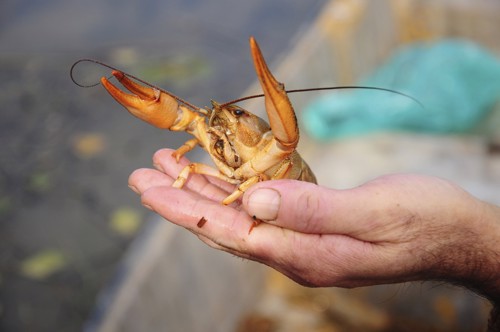A day of highlighting conservation of ecosystems across land and sea, Earth Day isn’t just about planting trees and picking up litter (though we’re fans of both!). It’s also about big-picture thinking, and taking stock of how we live, how we use resources, and how young people can be part of shaping a more sustainable future.
There’s no better way to bring these ideas to life than through hands-on learning. Whether students are visiting glaciers, engaging with renewable technology, or learning how global ecosystems are connected, sustainability-focused trips help turn classroom concepts into real-world understanding.
The best part? These trips slot beautifully into UK curriculum goals across Geography and Science, but perhaps surprisingly also Citizenship, and even Design & Technology. Below, you’ll find three standout destinations that do just that, plus a few bonus excursions perfect for a single-day eco adventure. Read on and be inspired!

Geology, glaciers, and green energy in Iceland
If you want your students to experience the extremes of Earth's nature, then Iceland is the place to go. The country's wild, ever-changing landscape is full of geothermal hotspots, dramatic glaciers, and the kind of natural wonders that help bring science to life.
Every part of Iceland tells a story. A glacier visit offers the chance for students to learn about and see climate change in action, with visible ice retreat and shifting moraine patterns. At Thingvellir National Park, students can walk between tectonic plates and uncover a hands-on way to explore geology and plate tectonics. Or there's the to the Hellisheidi Geothermal Power Plant, where you’ll dive into renewable energy, carbon capture, and how Iceland – incredibly – powers its entire grid with nature.
Even the country's capital of Reykjavík has a sustainability story to tell. The city leads the way in clean energy, sustainable transport, and green design — perfect for a walking tour or project-based research.
Curriculum connections:
- Geography (KS3–A-Level): Physical geography, natural hazards, resource management
- Science (KS3–A-Level): Energy, climate change, Earth systems
- Citizenship (KS3/GCSE): Our impact on the planet; responsible global citizenship

Coastal fieldwork and eco-innovation in Cornwall
UK school groups don’t have to travel far to experience a first-class sustainability-focused trip. Cornwall is brimming with opportunities to explore the environment, get hands-on with fieldwork, and understand what sustainability looks like close to home.
The Eden Project is a particular highlight amongst our STEM trips – and for good reason. With its giant biomes, rainforest walks, and interactive exhibits, it’s an incredible place to explore biodiversity, water conservation, food security, and renewable materials. Its fun, immersive workshops and exhibits also provide groups with plenty of material to revisit back in the classroom (and real life), too.
Cornwall also shines when it comes to fieldwork. Whether you're investigating marine conservation at the Blue Reef Aquarium, exploring life cycles and habitats at the National Lobster Hatching Centre, or learning about wave power and wind turbines, there are endless ways to explore ecosystems and environmental processes.
Curriculum connections:
- Science (KS3/GCSE): Interdependence, biodiversity, human impact
- Geography (KS3/GCSE): Coastal processes, fieldwork skills, sustainability

Energy, engineering, and environmental Science in Geneva
Geneva might be known for diplomacy, but for school groups, it’s all about STEM – particularly with a sustainability focus. From hydropower and particle physics to cutting-edge environmental engineering, this Swiss city an excellent destination for curious minds.
One of the most relevant stops for STEM groups is the Emosson Dam, where students can see renewable energy in action on a huge scale. Set in the Alps, this incredible piece of infrastructure shows how hydropower supports low-carbon living, with engineering, physics, and environmental science all in the mix.
Another standout is CERN, where the focus is on particle physics and the technologies shaping our future — many of which have real environmental applications. You can even explore how scientific innovation is tackling the climate crisis through clean energy, data modelling, and materials science.
There’s also the Museum of the History of Science, a lovely spot for looking at how ideas around the scientific world have evolved — from early instruments to cutting-edge discoveries. All in all, Geneva makes a brilliant destination for groups interested in how science shapes a greener tomorrow.
Curriculum connections:
- Science (GCSE/A-Level): Energy and electricity, Earth science, scientific enquiry
- Geography (GCSE/A-Level): Managing energy resources, water systems, Alpine environments
More one-day wonders for eco learning
Short on time? These individual excursions pack a punch when it comes to conservation, climate science, and sustainability — perfect as standalone visits or part of a bigger trip.
Futurium, Berlin
An interactive museum where students imagine sustainable futures. Explore ideas around food, mobility, housing, and the environment through hands-on exhibits and tech demos.
➤ Best for: Future design, environmental innovation, ethical problem-solving
SEA LIFE London Aquarium
Go behind the scenes of conservation work, breeding programmes, and ocean protection campaigns. Educational sessions link directly to science and geography topics.
➤ Best for: Marine biology, ecosystems, plastic pollution awareness
This Earth Day, why not start planning a trip that really makes a difference – for your students and the planet. Get in touch with our expert team directly, by calling us on 01273 648248 or filling out our webform.






